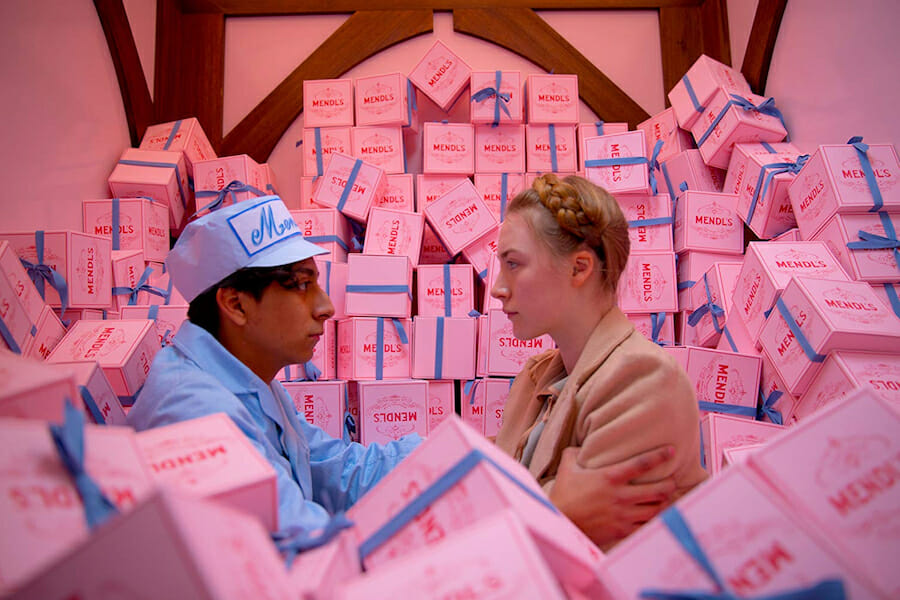
The Symbolism and Cozy Escapism of ‘The Grand Budapest Hotel’
Allegory teaches better than it entertains—unless director Wes Anderson is in charge. The Grand Budapest Hotel presents symbolism with enough character to win audiences’ hearts and minds. A cast of Anderson’s stylized buffoons and miscreants plays out the sorrowful subsidence of Old Europe beneath the weight of world war. The titular hotel is a prime relic of European romanticism. It devotes a wall as big as a mountain range to an oil painting. Its color scheme suggests a nursery: baby blue, pastel-pink, and deep purple. Its well-titled denizens crave solitude, macaroons, and a word with the flirtatious concierge, M. Gustave H.
Gustave, the keeper of the hotel’s traditions, resembles the Mendl’s pastries he serves: two parts painted sugar, and one part timeless handiwork. He overfills the hotel air with cologne. He woos a bevy of lonely, aged, blond heiresses. And yet there is genuine pluck to his friendship with lobby boy Zero. Gustave assiduously molds Zero as his protégé, teaching him an appreciation for service and for beauty. The concierge recoils and curses himself when he disrespects that friendship.
Gustave not only admires the art and fraternity of Old Europe, he depends upon it. He is questioned by the police at a train checkpoint until the captain recognizes him from a stay at the Grand Budapest.
When Gustave breaks out of prison, he calls on a secret network of European concierges to take him to safety. When he is on a mountain precipice, two handholds of ice away from death, he recites verses of his own romantic poetry—evidently because he finds it truly comforting. He believes it is his last will and testament.
For Gustave, the Grand Budapest is a bastion of culture, wrapped in pink. “You see,” he chimes, “there are still faint glimmers of civilization left in this barbaric slaughterhouse that was once known as humanity. Indeed that’s what we provide in our own modest, humble, insignificant…”
Superficially, Gustave resembles a character from the small screen: British statesman and bon vivant Lord John Marbury from The West Wing. Marbury is a peculiar mix of political conscientiousness and social licentiousness. His charm ultimately wins over the American president:
Chief of Staff Leo McGarry: You’re really gonna let him loose in the White House, where there’s liquor and women?
President Jed Bartlet: We can hide the women, but the man deserves a drink.
Comparing the two roles, however, Gustave is the heavier part. His symbolism in the film is the most important, as he represents the best of Europe’s traditions. It isn’t nobility or titles that Anderson longs for—in fact he surely satirizes these by naming the heiress of the film Countess Madame Céline Villeneuve Desgoffe und Taxis.
The highest good in Gustave is his pacifism. He may curate a hotel that looks like a giant macaroon, but he won’t give in to fascism when it ascends.
He dies at the hands of wordless thugs—the “ZZ” men who stand in for Nazis in The Grand Budapest Hotel. And we’re left to wonder how the film transformed the passing of a farcical concierge into a melancholic milestone of World War II.

